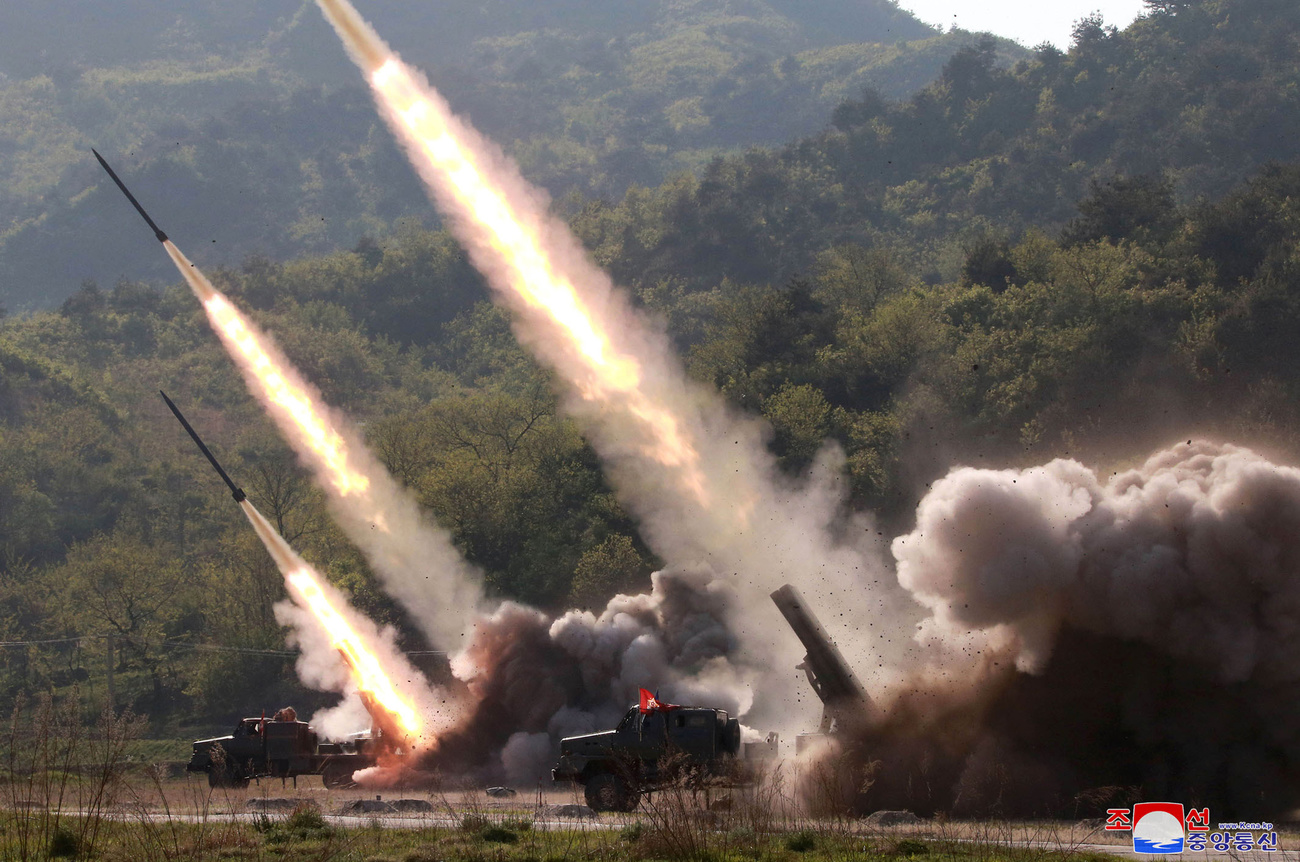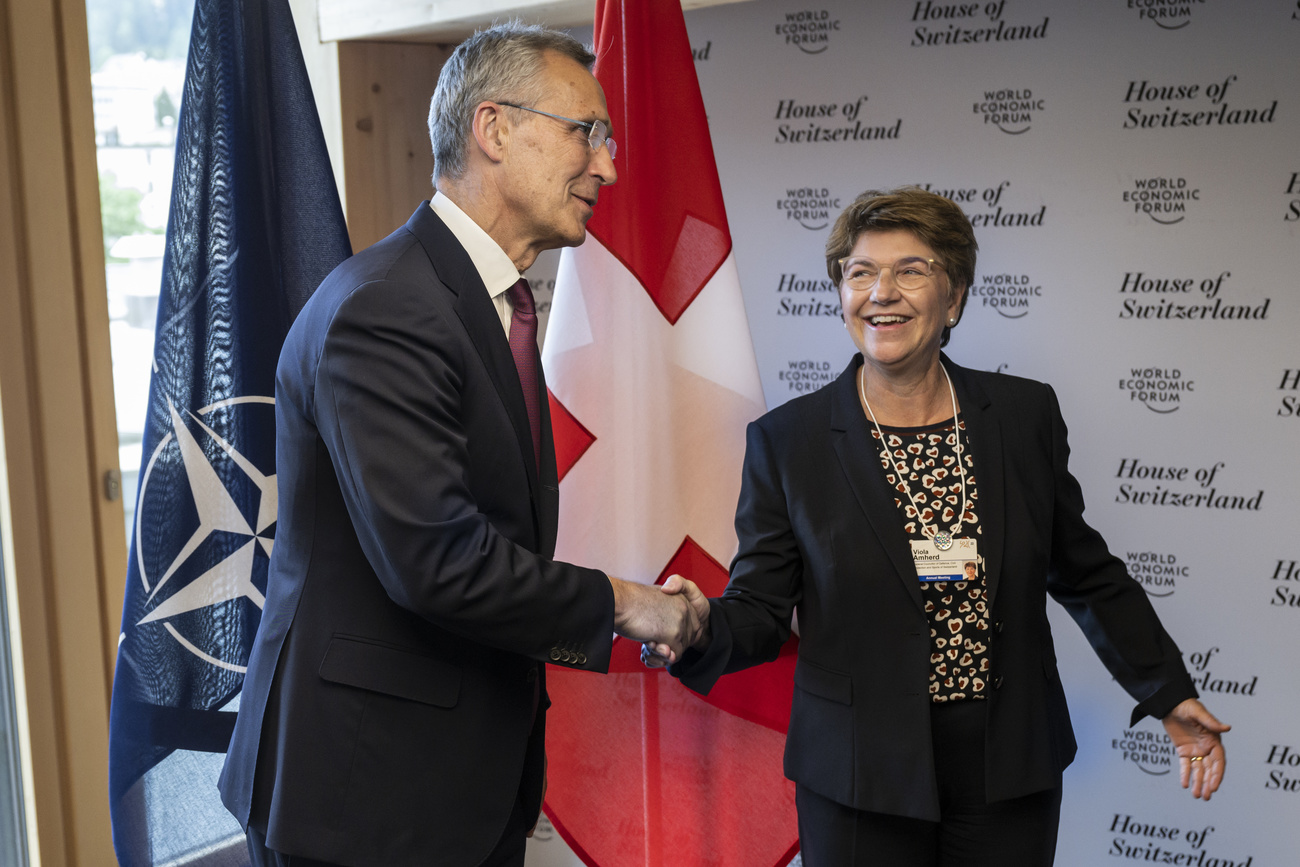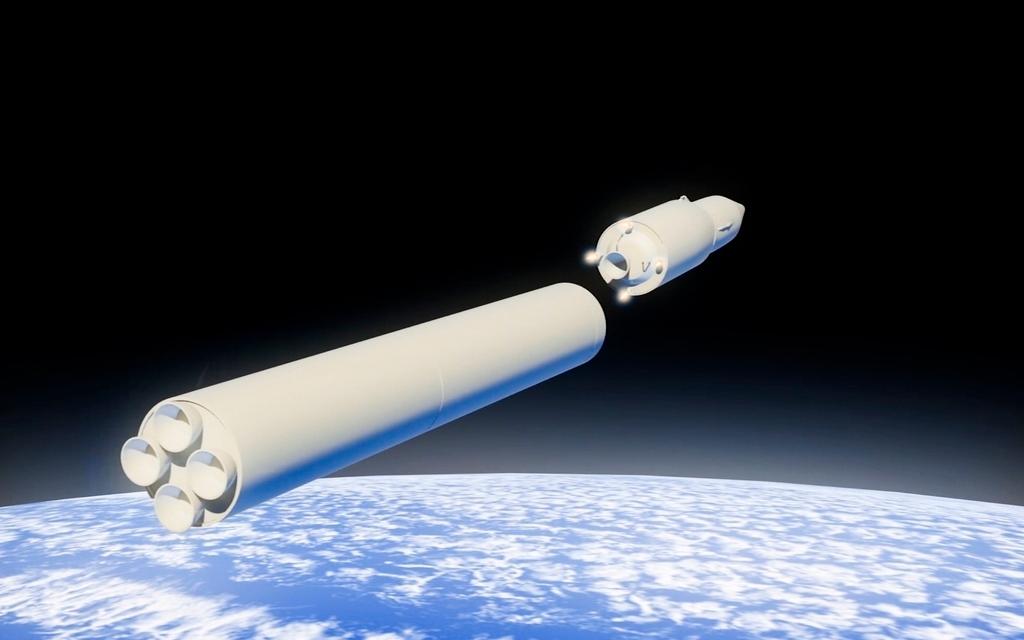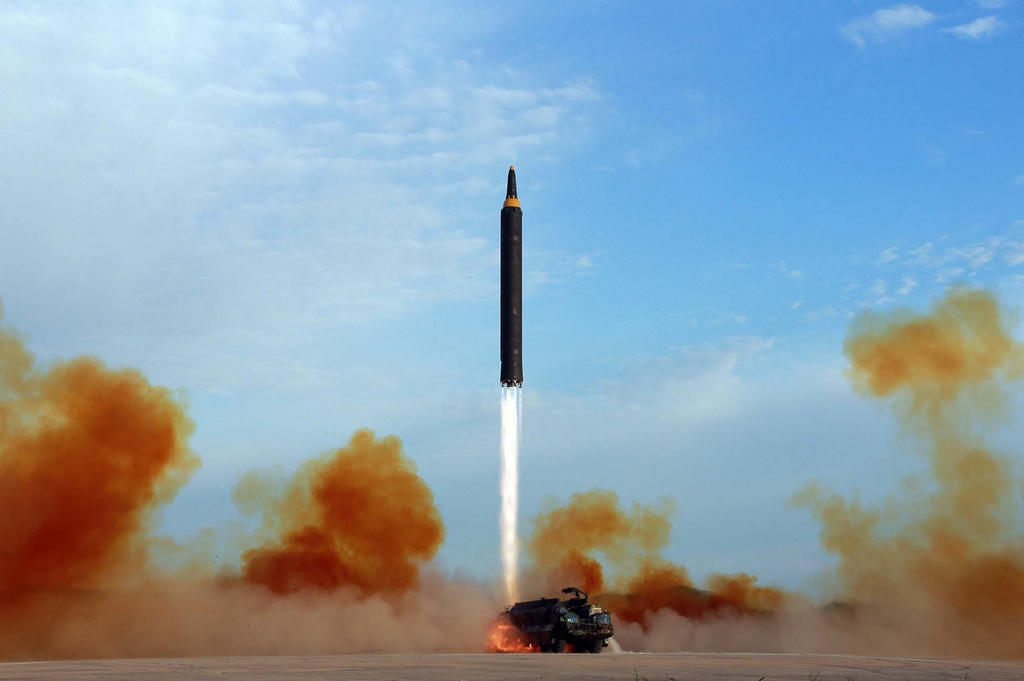
NATO reportedly urged Switzerland not to sign nuclear treaty

Jens Stoltenberg, Secretary General of defence alliance NATO, pressured Swiss Defence Minister Viola Amherd not to sign and ratify the UN Treaty on the Prohibition of Nuclear Weapons (TPNW), according to Swiss newspaper Le Temps.
Citing “well-informed sources”, the paper said Stoltenberg had discussed the treaty with Amherd during her visit to the organisation’s headquarters in Brussels in March – “an attempt to dissuade Bern from signing and ratifying the treaty”, it said on Monday. Switzerland is keen to extend participation in NATO exercises.

More
Swiss defence minister says NATO open to closer ties
Pressure from NATO, but also from three of its members – the United States, the United Kingdom and France – are said to be very strong, Le Temps wroteExternal link.
The Swiss government is expected to make its decision on the treaty in the coming weeks, after conducting an interdepartmental analysis to assess the interactions between the TPNW and the Treaty on the Non-Proliferation of Nuclear Weapons (NPT).
The TPNW was adopted in July 2017 in New York and entered into force in January 2021. It creates an explicit ban on nuclear weapons. Signatories commit not to develop, test, produce, acquire, possess, stockpile, use or threaten to use nuclear weapons.
Switzerland was one of 122 states to adopt the United Nations treaty in July 2017, but the following year it decided not to sign it, drawing criticism from NGOs who said it called into question the Alpine nation’s humanitarian tradition. It has since repeatedly put off making a decision. The government has argued that the reasons not to ratify the treaty outweigh the potential opportunities.

More
Government’s stance on nuclear ban under scrutiny
Florian Eblenkamp, head of advocacy at the Geneva-based International Campaign to Abolish Nuclear Weapons (ICAN), an NGO that was awarded the Nobel Peace Prize in 2017, told Le Temps: “NATO would have us believe that closer cooperation with the Atlantic Alliance is incompatible with signing the TPNW. There is no legal reason why such cooperation would be impossible if signed. Austria and Ireland, two neutral countries, and even New Zealand, have ratified it, but they still cooperate with NATO on various exercises.”
‘Viscerally opposed’
According to Le Temps, the defence ministry and minister are “viscerally opposed” to signing the treaty. It said a government report published in 2018 weighing up the pros and cons of ratifying the treaty left little doubt about the ministry’s position.
“In the extreme case of self-defence against an armed attack, Switzerland would probably cooperate with other states or alliances, not least with nuclear weapon states or their allies. In this context, reliance on nuclear deterrence would not be excluded but narrowly confined by its obligations under international law,” the government report said.
“As a party to the TPNW, Switzerland would reduce its freedom of action and abandon the option of explicitly placing itself under a nuclear umbrella within the framework of such alliances.”

More
Anti-nuclear weapons group wins Nobel Peace Prize

In compliance with the JTI standards
More: SWI swissinfo.ch certified by the Journalism Trust Initiative






























You can find an overview of ongoing debates with our journalists here . Please join us!
If you want to start a conversation about a topic raised in this article or want to report factual errors, email us at english@swissinfo.ch.